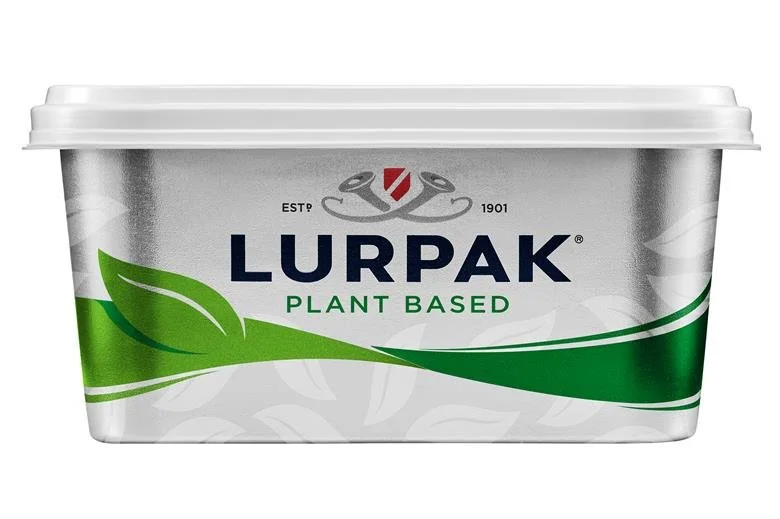SBR 41: New Lurpak SpreadABLE Marks A SHIFT IN STRATEGY
The plant-based movement has taken another significant step forward.
In addition to the rebranding of margarine to plant based b*tter, Arla Foods, one of the largest dairy producers in Europe, has now enetered the fray. They have announced the launch of a plant-based version of its iconic Lurpak spread. This new product signals not just a response to changing consumer demands but also a bold strategic move in a rapidly evolving market landscape. The reason this is particularly noteworthy to me, is that Arla is owned by dairy farmers, and Lurpak is the crown jewel of their portfolio.
Commercially, it makes sense to me. But I do wonder about how this piece of NPD might affect the brand’s credentials in it’s heartland of butter.
A Growing Trend in the Dairy Industry
Last year, we wrote about how major players in the dairy industry were increasingly venturing into plant-based alternatives. The trend has only gained momentum since then. As consumers become more health-conscious and environmentally aware, the demand for plant-based options continues to surge. Arla’s decision to introduce a plant-based Lurpak is a testament to this growing trend and a clear indication that traditional dairy brands are having to adapt to stay relevant.
Targeting Flexitarians Over Hardcore Vegans
However, it’s important to consider who exactly this new product is aimed at. Lurpak is traditionally known as a premium dairy butter brand, which may not resonate with hardcore vegans. For many in the vegan community, the brand’s strong association with animal products could be a deterrent.
Instead, my guess is that the plant-based Lurpak is likely directed more at “foodie flexitarians”—those who are open to reducing their animal product consumption but have not fully eliminated it. Foodie flexitarians are drawn to high-quality, plant-based alternatives that offer a similar taste and experience to their traditional favourites. Lurpak’s established reputation for quality already appeals to this group. This product increases the number of occasions the brand is relevant for.
This seems to be backed up by a quote from Peter Giørtz-Carlsen (executive vice-president and COO of Arla Foods) in the Grocer: “in order to strengthen the position of our brands and attract new consumers, we have to innovate. We believe there is room for both dairy and non-dairy in a healthy, sustainable diet and our new innovation in plant-based allows us to offer our shoppers that choice within our brand portfolio.”
Why This Matters
For years, Lurpak has been synonymous with high-quality, premium butter. The introduction of a plant-based alternative not only broadens Arla’s product offering but also give flexitarians more chances to buy their product. This move aligns with the broader industry shift towards sustainability and inclusivity, catering to a more diverse consumer base. Competitors will undoubtedly be watching closely. The introduction of a plant-based Lurpak could set a new standard for quality in this category, forcing other brands to innovate and elevate their offerings.
What Else Could They Have Tried?
Another option was for Arla to push their Jörd brand harder and extended it into butter. This may have protected the Lurpak brand’s buttery credentials more, but would have been a hideously expensive thing to achieve. In the meantime I suspect Lurpak would have been losing share to dairy alternatives outside the Arla portfolio. Protecting the Lurpak brand value would have been paramount in their thinking.
The Future of Dairy Alternatives
The launch of plant-based Lurpak is more than just a new product on the shelf; it’s a signal of where the future of the food industry is headed. As plant-based alternatives become increasingly more mainstream, we can expect to see more traditional dairy brands diversifying their portfolios. For marketers of those brands, that presents a new and interesting challenge.
At Big Black Door, we’re excited to see how these shifts will influence the market and consumer behaviour. As always, we’ll be keeping a close eye on the developments and helping our clients navigate this dynamic landscape.
Conclusion
Arla’s plant-based Lurpak is a bold move that reflects the ongoing transformation of the food industry. While it may not fully capture the hardcore vegan market, it’s perfectly positioned to attract flexitarians—consumers who are looking to reduce their animal product intake without compromising on taste or quality. This launch serves as a clear reminder that staying relevant in today’s market requires not only understanding consumer trends but also being willing to innovate and adapt. Whether you’re a brand looking to enter the plant-based space or a marketer aiming to connect with eco-conscious consumers, the time to act is now.

